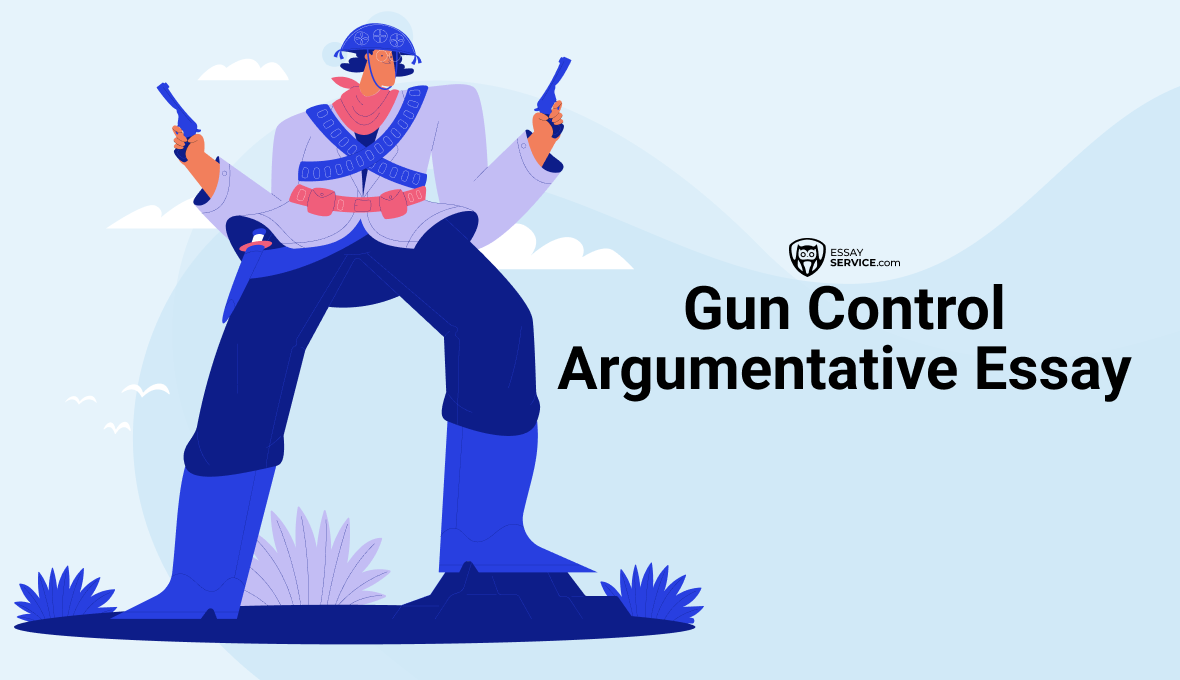.png)
How to Write a Rhetorical Analysis Essay: A Guide Full of Tips
Ever wondered how creators get their messages across in things like texts, TV shows, movies, or art? That's what a rhetorical analysis is all about. It helps you figure out how well they're doing it. But how do you actually write one? This article breaks it down for you step by step.
From understanding what is the purpose of a rhetorical analysis essay to crafting a clear thesis statement, organizing your essay well, and giving it that final polish through revision and editing, we've got you covered. Whether you're a student tackling an assignment or just curious about how communication works, keep reading to learn all about rhetorical analysis.
What is a Rhetorical Analysis Essay?
So, what exactly does a rhetorical analysis essay definition entail? Simply put, it's an exploration of how messages are crafted and conveyed in different forms of media. The purpose? Well, it's twofold. One, it helps you understand the techniques used by creators to get their message across. Two, it teaches you to think critically about the media you consume.
Now, when we talk about the parts of rhetoric, we're really diving into the nuts and bolts of persuasion. There are three main elements of a rhetorical analysis essay: ethos, pathos, and logos.
Ethos relates to the credibility or trustworthiness of the speaker or creator. It's all about establishing authority and credibility to make the audience more receptive to the message.
Pathos is about emotions. It's when they tug at your heartstrings, making you feel something deep inside.
And then there's logos, which is all about logic. It's when they hit you with facts and reason, trying to convince you with good old-fashioned sense.
Rhetorical Analysis Essay Guide
A typical rhetorical paper, similar to a character analysis essay, consists of five paragraphs divided into three main parts: an introduction, three body paragraphs, and a conclusion. While learning how to write a rhetorical analysis essay step by step, remember to break down the work into its parts, describe how those parts work together, and consider the author's desired effect—whether it's to inform, entertain, or persuade. Follow the below steps, and you'll be well on your way to crafting a compelling essay.
.png)
Collect All the Details
Similar to the approach for a literary analysis essay, begin by immersing yourself in the creative work you're examining. For instance, if you're analyzing a persuasive speech given by a political candidate, pay attention to how the candidate uses language, tone, and imagery to appeal to their audience. For instance, they might employ emotionally charged language to evoke empathy and rally support for their cause. Additionally, observe how the candidate's body language and delivery style enhance their credibility and authority as a speaker.
Moreover, consider the overarching message of the speech. Is the candidate aiming to inspire hope, instill fear, or provoke action? By closely analyzing the rhetorical strategies employed, you can gain insights into the candidate's persuasive tactics and their intended impact on the audience.
Furthermore, you might compare this speech to others delivered by different political figures. Contrasting their approaches can reveal the unique rhetorical styles and priorities of each speaker, providing a deeper understanding of the strategies at play.
Identify Style Choices in Your Rhetorical Appeal Analysis Essay
As you analyze a creative work, pay attention to the way the creator chooses to communicate. Notice the language they use and the tone they adopt. For example, in a persuasive speech, a politician might use strong, confident language to inspire action.
Consider the images and symbols employed in the work. These visual elements can convey deeper meanings and evoke emotions. In a piece of art, colors, and imagery can create powerful impressions and convey complex ideas.
Think about how the work is structured and organized. Is there a clear progression of ideas? In a persuasive essay, a well-organized argument can make it more compelling to the reader.
Examine the Elements of a Rhetorical Analysis Essay
The next step in crafting your essay is to examine the elements of the rhetorical triangle: ethos, pathos, and logos.
In your analysis, consider how the creator establishes their authority on the subject matter. Do they possess relevant credentials or experience? Are they trustworthy and honest in their delivery? Look for instances where the creator references their expertise or employs language that enhances their credibility.
As you delve into your pathos rhetorical analysis essay, pay attention to how the creator elicits emotions from the audience. Are there poignant anecdotes or vivid descriptions that evoke sympathy or empathy? Do they use language that taps into universal human experiences, such as love, fear, or anger?
Scrutinize the evidence presented in your logos rhetorical analysis essay—are there statistics, facts, or expert opinions that bolster the argument? Assess the coherence and logical progression of the ideas—are they supported by sound reasoning and evidence? Analyzing the logical appeals allows you to assess the persuasiveness and validity of the creator's argument.
Build an Analysis
Let's now take a closer look at the information you've gathered. Ask yourself some key questions to understand why the writer made certain choices and how they support their argument:
- What is the writer trying to achieve with this piece?
- Who is the main audience the writer is addressing?
- What is the main point or argument the writer is making?
- How does the writer present and support this argument? Why do they choose these methods?
- What techniques does the writer use to persuade the reader? Why do they use these techniques?
- What style does the writer employ?
- What impact does the piece have on the audience?
Answering these rhetorical analysis essay questions will help you dissect the writer's intentions, methods, and the effect of their work on the audience. Whether it's a rhetorical or causal analysis essay, this analysis will add depth, making it more insightful and compelling.

Rhetorical Analysis Essay Outline
You'll typically structure your writing into three main parts of a rhetorical analysis essay: an introduction, body paragraphs, and a conclusion. To craft a solid outline for your analysis, keep these steps in mind:
- Start with your thesis statement: Begin your outline by clearly stating your thesis at the top. This sets the tone for your analysis and keeps you on track with your main argument.
- Organize your points: Next, jot down the key points or arguments you'll be making. These could correspond to the various rhetorical strategies employed by the author that you plan to dissect.
- Provide supporting details: Under each main point, include specific details, examples, or quotes from the text that back up your argument. These details add depth to your analysis and reinforce your thesis.
- Follow a logical order: Arrange your main points in a logical sequence. You might choose to order them based on how they're presented in the text, their effectiveness, or their significance. This helps your analysis flow smoothly and makes it easier for your reader to follow your line of reasoning.
Rhetorical Analysis Essay Introduction
To start off, you want to grab your reader's attention with an engaging opener. This could be a question that gets them thinking, a surprising fact, or a powerful quote related to what you're analyzing. For example, you might begin by painting a vivid picture of a historic moment, such as Martin Luther King Jr.'s famous 'I Have a Dream' speech.
Additionally, when crafting your introduction, consider incorporating elements from your rhetorical analysis essay title to further intrigue your reader. This inclusion can set the stage for your analysis and provide a preview of the themes you'll be exploring in your essay.
Next, provide some necessary context about the text or speech you're analyzing. This includes mentioning the author's name, the title of the work, and the setting in which it was delivered. This helps set the stage for your analysis and gives your reader a clearer understanding of what you'll be discussing.
Finally, you'll state your rhetorical analysis essay thesis, which is the main argument or purpose of your analysis. Make sure your thesis is clear and specific, outlining the rhetorical strategies you'll be exploring in the body paragraphs. This sets the direction for your analysis and lets your reader know what to expect.
Body
Each rhetorical analysis essay body paragraph should focus on a specific rhetorical strategy or idea that you're analyzing. Start with a topic sentence that introduces the main point of the paragraph. This acts as a roadmap for your readers, guiding them through your analysis.
Provide evidence from the text to support your analysis. This could be direct quotes, paraphrases, or summaries of relevant passages. Be sure to explain how the evidence supports your interpretation and contributes to the author's overall message.
Analyze how the author uses rhetorical devices like ethos, pathos, and logos to achieve their goals. Discuss the effectiveness of these strategies in persuading the audience and advancing the author's argument. This is where you delve into the nuts and bolts of the text, exploring how language and persuasion work together.
Use transitions to smoothly connect your ideas and ensure a logical flow of your rhetorical analysis essay format. Knowing these tips on how to structure a rhetorical analysis essay helps your writing feel cohesive and keeps your readers engaged as they move through your argument.
Conclusion
Lastly, let's examine how to write a conclusion for a rhetorical analysis essay. Here, you'll wrap up your analysis by summarizing the main points you've made. Rather than simply repeating what you've already said, restate your thesis and briefly recap the key insights from your body paragraphs.
Reflect on the overall effectiveness of the author's rhetorical strategies and their impact on the audience. Consider how these strategies contribute to the author's message and why they're important in the context of the text.
Finally, end with a closing thought or call to action that leaves a lasting impression on your reader. This could be a reflection on the broader significance of your critical analysis essay or a suggestion for further exploration of the topic.
8 Rhetorical Analysis Essay Tips
We're not done writing a rhetorical analysis essay just yet! But fear not, here are some nifty tips to spruce up your work, even if you're knee-deep in a poem analysis essay:
.png)
- Pick Unique Prompts for Fresh Insights: Choose those rhetorical analysis essay prompts that challenge you to analyze a lesser-known or unconventional piece of rhetoric, as this can lead to more unique insights and a richer analysis.
- Set Clear Direction with Your Thesis: Which is the most effective thesis statement for a rhetorical analysis essay you may ask? It's the one that not only mentions the rhetorical techniques the author uses but also explains how these techniques persuade or impact the audience.
- Identify the rhetorical devices: Begin by recognizing the various rhetorical devices used in the text, such as imagery, metaphors, or parallelism. Highlighting these elements helps you understand how the author crafts their message.
- Consider the context: Delve into the context surrounding the text, including the author's background, the intended audience, and the historical or cultural setting. This context informs how the rhetoric is perceived and its effectiveness.
- Analyze the tone and style: Pay close attention to the tone and style of the writing. Is it formal or informal? Is there an emotional appeal or logical reasoning? Understanding these nuances adds depth to your rhetorical analysis argument essay.
- Evaluate the impact: Assess the impact of the rhetorical strategies on the audience. Did they evoke a strong emotional response, persuade the audience to take action, or challenge existing beliefs? Analyzing the effectiveness of these strategies strengthens your analysis.
- Connect with the thesis: Ensure that your analysis aligns with your thesis statement. Every point you make should contribute to supporting or elaborating on your main argument. This coherence keeps your analysis focused and cohesive.
- Engage with counterarguments: Acknowledge and address potential counterarguments or alternative interpretations of the text. This demonstrates a nuanced understanding of the rhetoric and strengthens the depth of your analysis.
Rhetorical Analysis Essay Topics
Now, let's dive into some intriguing rhetorical analysis essay ideas. These aren't your run-of-the-mill suggestions. We've curated a list of the top 10 most captivating rhetorical analysis essay topics for college students. So, jump right in and choose your favorite:
- The Role of Emojis in Communication: Explore how emojis are used to express feelings and ideas in text messages and social media and how they influence our understanding of digital conversations.
- Virtual Reality Storytelling: This rhetorical analysis essay example will investigate how virtual reality technology tells stories and creates immersive experiences, like being inside a movie or video game.
- Relaxation Videos and ASMR: Look into videos designed to help people relax and feel calm, exploring how sounds and visuals are used to create soothing experiences.
- Hip-Hop Music's Impact: Examine how hip-hop songs talk about important issues and tell stories using clever language and metaphors.
- Street Art for Environmental Messages: Study how artists use public art like murals and graffiti to talk about environmental problems and encourage people to take action.
- Social Media Influencers Who Aren't Real: Investigate how computer-generated influencers on platforms like Instagram use persuasive tactics to gain followers and promote products.
- Conspiracy Theories on Podcasts: Explore how podcasts talk about conspiracy theories and why people find them interesting, even when they're not true.
- False Health Information Online: Look at how false health claims spread on social media and how they affect people's decisions about their health.
- Books That Imagine Dark Futures: Examine stories that imagine what the world might be like if things went wrong and how they make us think about the present.
- Fashion and Borrowing from Other Cultures: Explore how fashion designers use elements from different cultures in their designs and the debates around whether this is respectful or harmful.
Rhetorical Analysis Essay Example
Now, buckle up for what might just be your favorite section! We've whipped up a tantalizing rhetorical analysis essay sample to help you put theory into practice. Take a close look and let it inspire your own work. Consider it our little gift to make your writing journey a breeze.
Title: Hip-Hop Music's Impact: Unveiling the Rhetorical Power of Lyrics
Introduction:
Hip-hop music, a genre born from the streets of New York City in the 1970s, has evolved into a global cultural phenomenon. Beyond its infectious beats and catchy rhythms, hip-hop is a powerful form of expression that often serves as a platform for social commentary and storytelling. This essay delves into the rhetorical impact of hip-hop lyrics, exploring how artists use language, metaphors, and storytelling techniques to convey messages, shape perceptions, and inspire social change.
Thesis Statement:
Through an analysis of hip-hop lyrics, it becomes evident that the genre is not merely entertainment but a potent medium for addressing social issues, expressing cultural identity, and challenging societal norms.
Body Paragraphs:
1. The Power of Language:
Hip-hop lyrics are renowned for their vivid imagery, wordplay, and linguistic dexterity. Artists manipulate language to create powerful narratives that resonate with listeners. For example, in Kendrick Lamar's song "Alright," he utilizes repetition and wordplay to convey resilience in the face of adversity. Lines like "We gon' be alright" serve as a rallying cry for hope and perseverance in the midst of social injustice and systemic oppression.
2. Addressing Social Issues:
One of the defining features of hip-hop is its ability to shine a spotlight on pressing social issues. Artists use their platform to address topics such as poverty, racism, and police brutality. In the song "The Message" by Grandmaster Flash and the Furious Five, the lyrics paint a stark picture of urban decay and inequality, highlighting the struggles faced by marginalized communities. Through storytelling and vivid imagery, hip-hop becomes a voice for the voiceless, bringing attention to issues often ignored by mainstream media.
3. Cultural Identity and Representation:
Hip-hop serves as a means of cultural expression, allowing artists to celebrate their heritage and assert their identity. In songs like "Empire State of Mind" by Jay-Z and Alicia Keys, the lyrics pay homage to New York City, capturing the essence of its vibrant culture and diverse communities. Through references to landmarks, neighborhoods, and local slang, hip-hop becomes a reflection of urban life and a source of pride for its inhabitants.
4. Challenging Societal Norms:
Hip-hop has never been afraid to challenge societal norms and question authority. Artists use their lyrics to critique political leaders, challenge stereotypes, and advocate for change. In "The Revolution Will Not Be Televised" by Gil Scott-Heron, the lyrics serve as a call to action, urging listeners to question the status quo and take a stand against injustice. Through bold and provocative language, hip-hop becomes a catalyst for social and political activism.
Conclusion:
In conclusion, hip-hop music is a multifaceted art form with a profound rhetorical impact. From its innovative use of language to its unapologetic social commentary, hip-hop serves as a powerful vehicle for expression and empowerment. Through an analysis of hip-hop lyrics, it becomes clear that the genre transcends mere entertainment, serving as a voice for the marginalized, a celebration of cultural identity, and a catalyst for social change. As hip-hop continues to evolve and influence global culture, its rhetorical power remains undeniable, shaping perceptions, challenging norms, and inspiring generations to come.
Wrap Up
As we wrap up our discussion on how to write a rhetorical analysis essay, let's take a moment to reflect. From crafting engaging introductions to dissecting the author's techniques, we've explored how rhetoric influences us in various forms of communication, like hip-hop lyrics or political speeches.
Remember, doing a rhetorical analysis is more than just picking apart words. It's about seeing how they affect what we think and do. So, as you do your own analyses, stay open-minded and think carefully. That way, you'll get better at understanding what you read and say in our complicated world.
Frequently asked questions
How to Start a Rhetorical Analysis Essay?
Start your rhetorical analysis essay with a bold rhetorical question that challenges the reader's perspective, drawing them into the analysis from the get-go. Alternatively, using a shocking statistic or quote that highlights the relevance and urgency of the topic will spark curiosity and prompt immediate attention. These approaches set the stage for an impactful analysis that keeps readers hooked from the start.
How Long Should a Rhetorical Analysis Essay Be?
When it comes to length, aim for a balance between being concise and thorough. While there's no strict word count, focus on analyzing key rhetorical devices and strategies without getting bogged down in unnecessary details. By prioritizing clarity and relevance, you can ensure that every part of your essay contributes meaningfully to your argument, keeping your readers engaged without overwhelming them.
What is the Point of a Rhetorical Analysis Essay?
The main goal of a rhetorical analysis essay is to uncover how language and persuasion work together to shape opinions and emotions. By dissecting texts, speeches, or media, you can reveal the techniques used to influence audiences and highlight the impact of rhetoric on society. Ultimately, these essays empower readers to think critically about the messages they encounter, fostering a deeper understanding of persuasive communication and its effects on our world.
New posts to your inbox!
Your submission has been received!



